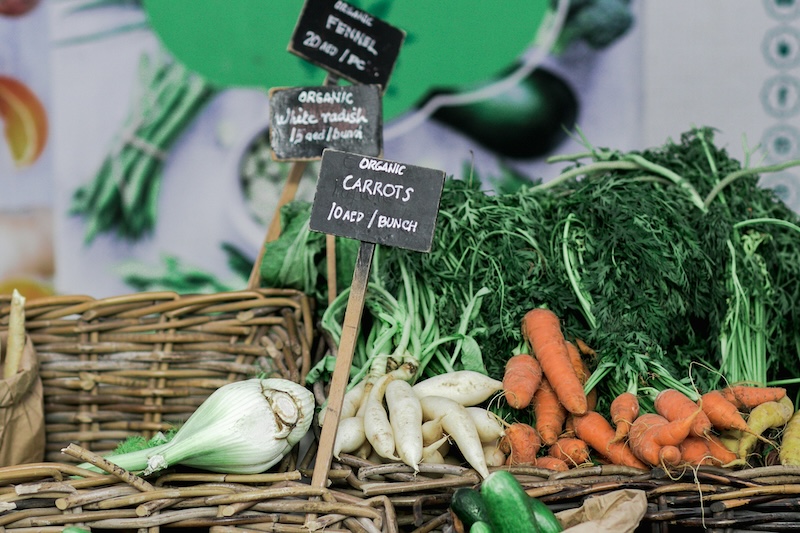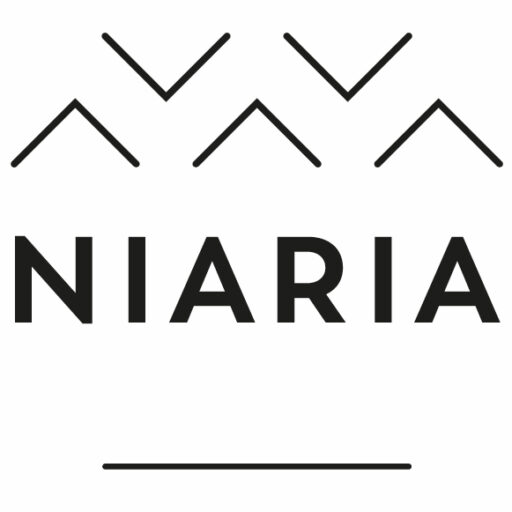
In today’s fast-paced world, the pursuit of a healthier lifestyle has never been more pronounced. One of the most effective ways to enhance overall well-being is using the power of nutrient-rich eating. This approach focuses on consuming foods that offer an abundance of vitamins, minerals, and other essential nutrients while minimizing the intake of processed and refined products. For those interested in plant-based eating, this guide will explore nutrient-rich foods and provide practical tips for incorporating them into your daily diet.
Understanding Nutrient-Rich Eating
Nutrient-rich eating involves choosing foods that provide the highest nutritional value with the least amount of empty calories. This means prioritizing foods dense in vitamins, minerals, fiber, and antioxidants. When adopting a plant-based diet, focusing on plant sources for these nutrients is crucial, avoiding animal products and processed foods.
Improved health and vitality:
A nutrient-dense diet supports overall health by boosting the immune system, improving digestion, and increasing energy levels. Plant-based foods are often high in antioxidants, which help combat oxidative stress and inflammation in the body.
Weight management:
Nutrient-dense foods are typically lower in calories but high in fiber, which helps you feel fuller for longer. This can aid in weight management and reduce the risk of obesity.
Better digestion:
Many plant-based foods are rich in dietary fiber, which supports healthy digestion and can prevent issues such as constipation.
Enhanced skin health
The vitamins and minerals found in fruits and vegetables can contribute to healthier skin, reducing the appearance of acne and premature aging.
Key Nutrient-Rich Foods
Leafy greens:
Spinach, kale, Swiss chard, and collard greens are excellent sources of vitamins A, C, K, and several B vitamins. They are also rich in minerals like iron, calcium, and magnesium. Incorporate these greens into salads, green smoothies, or Buddha bowls to maximize their benefits.
Berries:
Blueberries, strawberries, raspberries, and blackberries are packed with antioxidants and vitamin C.
Legumes:
Beans, lentils, and chickpeas are fantastic sources of plant-based protein, fiber, and iron. They can be used in a variety of dishes, including soups, stews, and salads.
Nuts and seeds:
Almonds, chia seeds, flax seeds provide essential fatty acids, protein, and fiber. They are great for snacking or can be added to oatmeal, and salads.
Root vegetables:
Sweet potatoes, carrots, and beets are rich in vitamins A and C, as well as potassium and fiber. These can be roasted, mashed, or added to soups and stews.
Whole grains:
Quinoa, brown rice, and oats are excellent sources of complex carbohydrates, fiber, and B vitamins. They serve as a great base for meals and provide long-lasting energy.
Avocado:
Avocados are loaded with healthy fats, potassium, and vitamins E and C. They can be added to salads or enjoyed on their own with a sprinkle of salt and pepper.
Sea vegetables:
Seaweed varieties like nori, kelp, and dulse are rich in iodine, calcium, and various vitamins. They can be used in salads, soups, or as snacks.

Creating a Balanced Plate
To ensure that your diet is nutritionally balanced, aim to include a variety of the foods mentioned above in each meal. Here’s how you can build a nutrient-rich plate:
Base:
Start with a whole grain like quinoa or brown rice.
Protein:
Add a serving of legumes such as chickpeas or lentils.
Veggies:
Load up on a variety of colorful vegetables, including leafy greens and root vegetables.
Healthy fats:
Incorporate avocado or a handful of nuts and seeds.
Fruits:
Have a serving of fresh fruit or berries as a snack for a touch of sweetness and additional nutrients.
Tips for Successful Plant-Based Eating
Plan your meals:
Planning helps ensure that you get a diverse range of nutrients. Make a weekly meal plan and prep your ingredients in advance.
Stay hydrated:
Drink plenty of water throughout the day to stay hydrated. Herbal teas and infused water (with apple, strawberry, pineapple, spearmint) can also be refreshing options.
Supplement wisely:
While a well-planned diet can provide most of your nutritional needs, consider supplements for nutrients that may be harder to obtain, such as vitamin B12, vitamin D, and omega-3 fatty acids from algae-based sources.
Avoiding Processed and Refined Foods
Incorporating a variety of nutrient-dense whole foods into your diet is crucial for optimal health. It’s also important to minimize or avoid processed and refined foods, which often contain unhealthy fats, excess sugars, and artificial additives. Instead of reaching for processed snacks or sugary treats, opt for whole, natural foods that offer real nutritional benefits.
Ways to Avoid Processed and Refined Foods

Choose fresh and natural foods:
Prioritize fresh fruits and vegetables, whole grains, nuts, and seeds. These natural foods help you avoid processed products and provide full nutritional value.
Opt for homemade recipes:
Preparing your own meals instead of relying on processed foods gives you control over ingredients and helps you create healthier options. Homemade soups, salads, vegetable dishes, and grain-based meals are more beneficial for your health.
Pay attention to labels:
Read food labels carefully. If the ingredient list includes long chemical names or excessive amounts of sugar or artificial additives, avoid those products. Opt for natural and minimally processed items.
Prefer less packaged products:
Choose fresh and less packaged foods over pre-packaged items. Especially products from local markets or directly from producers are less processed and more nutritious.
Prepare meals in advance:
Preparing and portioning meals in advance can help you avoid processed snacks. Healthy snacks and meals prepared ahead of time make better choices throughout the day.
Extra Tips for a Healthy Lifestyle
Stay informed:
Being knowledgeable about nutrition helps you make healthier choices. Read nutrition books, research from reliable sources, and continue to learn about healthy recipes.
Ensure variety in your diet:
Providing variety in your diet ensures that you receive different nutrients needed by your body. Use vegetables, fruits, and various grains in different colors to prepare balanced and nutritious meals.
Make healthy snack choices:
Choosing healthy snacks helps manage hunger and prevent the consumption of processed products. Fresh fruits, nuts, and vegetable sticks are good alternatives.
Increase physical activity:
Along with healthy eating, regular physical activity is important. Exercise supports overall health, boosts energy levels, and helps with weight management.
Get adequate sleep:
Sufficient sleep directly impacts your eating habits. Proper sleep helps regulate your metabolism and supports making healthy choices.
Try new recipes:
Diversifying your meals not only satisfies your taste buds but also enriches your nutrition. Continuously experimenting with new recipes enhances your culinary creativity and contributes to better health. Here are some ways to increase meal variety and try new recipes:
Draw inspiration from different cultures
World cuisines offer a variety of flavors and ingredients. You can explore spicy stir-fries from Asian cuisine or olive oil-based mezze from Mediterranean cuisine. Each culture’s unique ingredients and cooking methods can add a new dimension to your meals.
Use seasonal ingredients
Seasonal ingredients are fresh and nutritious. Create new recipes using fruits and vegetables that are in season. For example, cold soups made with tomatoes and peppers in summer or hot soups with sweet potatoes and celery in winter can provide seasonal variety to your diet.
Explore different cooking methods
Try different cooking techniques with the same ingredients. Sautéing, steaming, roasting, or eating raw can change the flavor and texture of ingredients. For example, you can roast sweet potatoes or steam them to add to your salads.
Create creative combinations
Stuffed sweet potatoes
Bake sweet potatoes until tender, then cut them open and lightly fluff the inside. Fill the center with a mixture of sautéed black beans, corn, and chopped tomatoes. Top with fresh cilantro, avocado slices, and a squeeze of lemon juice before serving.
Warm mixed quinoa salad
Cool cooked quinoa on a plate. Top with roasted chickpeas, chopped tomatoes, cucumber, and fresh mint. Season with lemon juice, olive oil, and salt. This salad can be served cold or at room temperature and is both nutritious and flavorful.
Vegan sushi rolls
Prepare vegan sushi rolls using nori sheets. Fill them with thinly sliced avocado, carrot, cucumber, and lettuce. Sprinkle sesame seeds on the outside. Serve with soy sauce and wasabi.
Colorful Buddha bowls
Buddha bowls are highly versatile and can be enriched with a variety of ingredients. Start with a base of cooked quinoa or brown rice. Add roasted vegetables like bell peppers, zucchini, and sweet potatoes. Include fresh spinach or Swiss chard, and drizzle with tahini sauce or lemon-tahini dressing. For a source of protein, add black beans or chickpeas. Garnish with avocado slices and sesame seeds.
Utilize recipe books and online resources
Explore recipe books, food blogs, and social media platforms to learn new recipes. YouTube cooking videos or our recipe blog and cookbook can provide step-by-step guidance and help you learn new techniques.
Prepare mixed snacks
Snacks can help control hunger between meals and support your healthy eating goals. Preparing a variety of nutritious snacks offers satisfying and healthy options. Here are some suggestions for creating mixed snacks:
Fresh vegetables and dip sauces

Raw vegetables are low-calorie and rich in fiber. Slice carrots, cucumbers, peppers, and celery, and prepare dips such as hummus, guacamole, salsa, olive oil and herb dip, sweet potato dip, quinoa, and black bean dip to accompany them.
Here are some delicious dip recipes:
1. Hummus
Ingredients:
- 1 can chickpeas (drained and rinsed)
- 1/4 cup tahini
- 1/4 cup lemon juice (about 1 lemon)
- 1 small garlic clove (minced)
- 2 tablespoons olive oil
- 1/2 teaspoon ground cumin
- Salt (to taste)
- Water (as needed for consistency)
Instructions:
- Combine chickpeas, tahini, lemon juice, garlic, olive oil, and cumin in a food processor.
- Process until smooth. Add water as needed to achieve the desired consistency.
- Season with salt. Drizzle with additional olive oil and sprinkle with paprika, if desired.
2. Guacamole
Ingredients:
- 3 ripe avocados
- 1 small onion (finely chopped)
- 1-2 garlic cloves (minced)
- 1-2 tomatoes (diced)
- 1 jalapeño (seeded and finely chopped, optional)
- 1/4 cup fresh cilantro (chopped)
- Juice of 1 lime
- Salt (to taste)
Instructions:
- Scoop the avocado flesh into a bowl and mash with a fork.
- Add onion, garlic, tomatoes, jalapeño (if using), cilantro, and lime juice.
- Mix well and season with salt.
3. Salsa
Ingredients:
- 4 ripe tomatoes (diced)
- 1 small onion (finely chopped)
- 1 jalapeño (seeded and finely chopped)
- 1/4 cup fresh cilantro (chopped)
- Juice of 1 lime
- Salt (to taste)
Instructions:
- Combine tomatoes, onion, jalapeño, cilantro, and lime juice in a bowl.
- Mix well and season with salt. Let it sit for at least 30 minutes to allow the flavors to meld.
4. Olive oil and herb dip
Ingredients:
- 1/2 cup extra virgin olive oil
- 1 tablespoon dried oregano
- 1 tablespoon dried basil
- 1 tablespoon dried rosemary
- 1 tablespoon balsamic vinegar (optional)
- 1 garlic clove (minced)
- Salt and pepper (to taste)
Instructions:
- Combine olive oil, oregano, basil, rosemary, and minced garlic in a small bowl.
- Add balsamic vinegar if using.
- Season with salt and pepper. Mix well and let sit for at least 30 minutes.
5. Sweet potato dip
Ingredients:
- 2 medium sweet potatoes (peeled and cubed)
- 1 tablespoon olive oil
- 1/2 teaspoon ground cinnamon
- 1/4 teaspoon ground nutmeg
- 1/4 teaspoon smoked paprika
- Salt (to taste)
Instructions:
- Preheat oven to 180°C. Toss sweet potato cubes with olive oil, cinnamon, nutmeg, paprika, and salt.
- Spread on a baking sheet and roast for 25-30 minutes, or until tender.
- Let cool slightly, then blend in a food processor until smooth. Adjust seasoning if needed.
6. Quinoa and black bean dip
Ingredients:
- 1 cup cooked quinoa
- 1 can black beans (drained and rinsed)
- 1/2 cup corn kernels (fresh or frozen)
- 1/2 cup diced red bell pepper
- 1/4 cup fresh cilantro (chopped)
- Juice of 1 lime
- Salt and pepper (to taste)
Instructions:
- Combine quinoa, black beans, corn, red bell pepper, and cilantro in a bowl.
- Add lime juice and season with salt and pepper. Mix well.
- Serve chilled or at room temperature.
Enjoy your dips!
Fresh fruit slices

Fresh fruits offer a sweet snack alternative. Prepare apple, pear, banana, and orange slices, and top with a sprinkle of nuts or almonds.
Nuts and seeds
Nuts and seeds are rich in healthy fats, protein, and fiber. Enjoy a handful of almonds, walnuts, hazelnuts, chia seeds, or flaxseeds on their own, or add them to salads.
Energy balls and bars
Energy balls, typically made with dried fruits, oats, nuts, and cocoa, are a convenient, ready-to-eat snack. Prepare your own energy balls at home to avoid processed sugars and enjoy a healthy, portable snack.
Conclusion
Embracing a nutrient-rich, plant-based diet is more than just a trend—it’s a transformative approach to enhancing your overall well-being and vitality. By prioritizing foods abundant in essential vitamins, minerals, and antioxidants while reducing the intake of processed and refined products, you set yourself on a path to a more vibrant and balanced life. Incorporating nutrient-dense foods such as leafy greens, colorful fruits, wholesome legumes, and whole grains into your daily meals can yield remarkable benefits. These include improved digestive health, radiant skin, effective weight management, and increased energy levels. A diet rich in these elements not only supports your physical health but also promotes mental clarity and emotional balance.
As you embrace this lifestyle, you’ll likely notice how each meal can become a source of nourishment and joy, helping you feel more connected to your body’s needs and to the world around you. The journey toward optimal health is both personal and rewarding, offering a sense of accomplishment as you discover new ways to care for yourself and those you love. The positive changes you make today can lead to lasting benefits and a more fulfilling life.
Begin your journey toward a healthier, more vibrant lifestyle by incorporating nutrient-rich, plant-based foods into your diet today. Take the first step by exploring and experimenting with new, exciting recipes that highlight a variety of vegetables, fruits, legumes, and whole grains. Diversify your meals and be mindful of reducing processed and refined foods.
Plan your meals ahead of time to ensure that you’re consistently including a range of nutritious options. Explore innovative cooking techniques and seek out resources that can guide and inspire you, whether through online platforms, recipe books, or cooking classes. Engage with online communities or local groups focused on plant-based nutrition for additional support and motivation.
Embrace this journey with an open mind and heart, and let the benefits of nutrient-rich eating enrich your life. As you make these changes, remember that every positive choice is a step toward a healthier, happier you.
Don’t forget to follow us! Connect with us on social media for a wealth of resources including healthy recipes, valuable tips, and ongoing inspiration to support your nutritional journey. Stay updated with the latest content in our newsletter and join our community in celebrating the power of a nutritious, plant-based lifestyle. Your path to a healthier life starts here — let us be a part of your journey!
Oral Health: Causes, Prevention, and the Role of Nutrition
Oral health is often a neglected part of our...
Food Allergies: Causes, Symptoms, and Management
Food allergies and sensitivities are...
Unintentional Weight Loss
Unintentional weight loss can be distressing,...
The Negative Impacts of Plastic Usage on Health and the Environment
Plastic has revolutionized modern life,...
The Impact of Social Media on Body Image: How It Affects Women’s Health
Social media has transformed how we connect,...
Why Women Need Nutrition Counseling Beyond Weight Loss
Women face unique challenges when it comes to...
The Benefits of Journaling for Mental Health
Journaling has gained recognition as a powerful...
Minimalism and Health: The Effects of a Minimalist Lifestyle on Mental and Physical Well-being
Living in a world where consumerism and constant...
Physical activity: Cardio, Strength Training, Yoga, and Pilates
Engagement in regular physical activity is...










